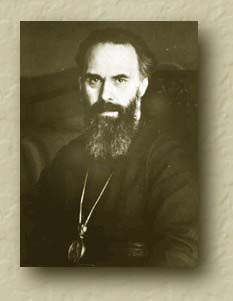There are two sides to the title of tonight’s sermon ‘Can modern man believe?’
It could, be answered very quickly and simply, “Yes, modern man does believe”. He believes in the most extravagant things: He believes in anything in our Western world except the traditional faith of the land. Credulity is more extraordinary in our days than it was fifty years ago — and I do not go farther back because this is about where my conscious memories reach. People who are scientifically trained and reasonably mature intellectually are prepared to believe certain things while rejecting as impossible other things.
I remember a book written by a man whom I admire and respect greatly, on his experience in the Himalayas, particularly in Tibet. He says somewhere in his introduction that he had to turn away from the Christian faith, because it is so full of unbelievable things. Then calmly, serenely, and yet with passion, he tells us the story of an ascetic who could fly freely at will.
I do not mean to say that no ascetic can fly, but I do say that if you believe that an ascetic can do such things, there are a lot of things he could have accepted in the Christian message which create much less scientific problems and which stretch a man’s imagination less. I do not think that I will insult anyone by saying that the spread of beliefs like flying-saucers, palmistry, astrology and many other things has increased amazingly in the last thirty or forty years. And yet people who are prepared to believe in all these things would say, “No, Christianity is beyond belief”.
I remember someone remarking to me that it was beyond belief to accept the resurrection of Christ and yet he believed in the Incarnation. And when I remarked that it was much easier to believe that God become man had risen from the dead than to believe the God become man could die, he looked at me in amazement and said, ‘Oh, I never thought of things that way’.
That credulity — the ability to accept things which are new, which are mysterious, which makes one an initiate of a group or a movement to which others do not belong — is extraordinary. And I wander whether the thrill of exoticism or the peculiar position in which one finds oneself when one does belong to such movements is not part of the ability of people to believe in their tenets. After all, it is rewarding to be unique even if there are a few more people who are as unique as you, but provided there are only a few and that uniqueness is really very apparent.
I have experienced that with regard to the Orthodox Church; I have turned away a number of people who wanted to become Orthodox, simply because having scratched the surface, I discovered very soon underneath the fact that the Orthodox Church was so exotic for them; it was so strange, it was such an interesting situation, it gave a status in life to be an Orthodox.
There are two ways for people who have problems of that kind; you must either conform at all costs and be a bleating sheep in the biggest possible fold, or else you must choose something so extravagant or extraordinary that you are on a pedestal. But it is very difficult to choose something simple, something that seems to be ordinary because people have lived with it for 2,000 or 5,000 or 10,000 years.
So in my conviction, modern man believes in a way in which people in the 19th and 18th centuries did not feel themselves capable of believing, ready to swallow anything provided the taste of it is new, and provided that it gives one the thrill of uniqueness and exoticism. I am not now speaking against anyone, I am speaking against the inability of people to let go of something which is unfamiliar for no better reason than that it is new and exiting. This is a shallow and poor response.
Let us now leave that aspect aside, and concentrate on the ability or otherwise of people to believe the Christian message. What are the difficulties in believing, and why do I think that one can be a reasonably educated and a reasonably intelligent person as I see myself and yet be a believer? First of all I think that one of the great difficulties which people in our time find in believing is the way in which the vocabulary of Christianity has been gradually corroded, eroded, adulterated and made to mean what it never meant before, so that in the end the message becomes so desperately anaemic that there is really no reason, no impetus, to believe in something that has practically no content.
When the Incarnation is made to by (?) a ‘myth’ or a symbol, when the Resurrection of course was not the bodily resurrection of Christ but some sort of spiritual event within the hearts of the disciples, when everything is translated in non-historical terms, in imagery, then the Gospel becomes one more fairy tale. I could quote fairy tales which are more entertaining than the Gospel, if it is entertainment we want rather than a doctrine that can give shape to life. So I do believe that the Church must give very earnest thought to what it has got to proclaim. The Gospel is a harsh document; the Gospel is ruthless and specific in what it says; the Gospel is not meant to be re-worded, watered down and brought to the level of either our understanding or our taste.
The Gospel is proclaiming something which is beyond us and which is there to stretch our mind, to widen our heart beyond the bearable at times, to recondition all our life, to give us a world view which is simply the world upside-down and this we are not keen to accept. And as the West has not yet had the courage on the whole to say that all this makes no sense and to reject it, many of its people find a way of explaining away the things which are too hard, too unbearable, and make of the Gospel something tame.
But the trouble is that when you add too much water into a glass of wine, it gradually becomes water tainted with wine, and it gives you none of the kick which a glass of wine could give. Indeed, if there is nothing more to the Gospel than a moral tale of a rather unsuccessful young prophet who ended badly on the cross, really there is very little to follow. St Paul said a long time ago that unless a trumpet blows clearly, no soldier will make ready for the battle. Who among us is prepared to launch into battle for nothing but a fairy tale?
The other point is that in Christianity in earlier days there was a discipline of life, that restructures the mind and the will towards God. When I say ‘discipline’, I do not mean something like military drill or a conventional way of doing things. The word ‘discipline’ comes from the same root as ‘disciple’; discipline is the condition of a disciple, of someone who has chosen a teacher, a master, and is prepared to learn from him at a cost, and the very point of having a teacher or a master is to be confronted with a mind greater than ours, a heart deeper and wider than ours, a will greater than ours, a way of life which is worth living. But all this is a costly exercise.
Bonhoeffer wrote a book called ‘The Cost of Discipleship’, and when you think of the way in which he lived and indeed in which he died, you will realise that discipleship is a costly thing — an exercise in courage, in greatness of heart. One of the things that the churches no longer do, as organised bodies, is to train people in the spiritual life, in heart and mind, and will, and action, in the same way in which, to take the imagery of St Paul, one trains an athlete for competition.
The training of the mind is a condition of discipleship with regard to science or the arts. But we are not in a condition of discipleship with regard to the Gospel; we get very little direction, and very little is demanded from us. One can be a Christian at a very low cost; it is thought enough to say that I am prepared to endorse a few statements concerning God, man, sin, salvation, the Church, and that is enough. No, it is not enough; the truth of the Gospel cannot be put forth as articles of association of people who want to call themselves Christian. It is a way of life and a hard way of life at that. The Gospel is ruthless, and the words of Christ are harsh, however loving they are; because love is ruthless, love will never accept compromise.
The law can be tampered with; there is a Russian saying that the law is like a puddle; if it is small you can step over it, if it is too big you can go round it. Love is not like a puddle; love has nothing in itself that can be got round. It is a total claim; there is no limit and that is the terrible thing about the Gospel. One could fulfill the law of the Old Testament; one cannot fulfill the law of love because the Old Testament made of rules is limited, but once we are called to love, which means to exist for others, to forget ourselves and to find our fullness only in that, there is no limit. So this is the second problem which the churches have got to face.
Now, I have used this word ‘the churches’ several times and I am sure a number of you think, ‘How true that is, if they over there — those in black, or those who are responsible for the church such as officials — did something intelligent about it; it would be so nice to the believers’… The trouble is that the Church is neither your Vicar, nor me, nor anyone wearing black cloth.
The Church is you and us together. Someone defined me once at a conference at which the clergy were not allowed, and to which I had been invited, as a ‘layman in clerical orders’. Well, you are ‘clerks, or clergy in lay orders’ and you cannot escape your responsibility for the adulteration of the Gospel and of the faith or for the lack of discipleship, by accusing us for not being guides. There is no such law that it is the clergyman that should guide; the clergyman is there to perform acts of prayer and to fulfill the sacraments. But knowledge of God is not given by ordination, and it the knowledge of God which is at stake here. So here is another reason why Christianity is in disrepute, and why a number of people find it difficult to believe.
People say that 2,000 years of Christianity have not made such a difference to the world . I believe that this is a flat lie or a gross mistake. Christianity has made an enormous difference to the world. Before Christ there was no notion of the human person possessed of an absolute value; in the Greek and Roman empires, there were the free people, the overlords who had a right to be persons, and then there were human cattle, people who could be replaced by other people. They had names because it was convenient, but that was all.
The notion that the lowest of the low has got as absolute a significance as the highest in human eyes, is something that has come with Christ’s teaching, with the proclamation of God’s attitude to each of us and to (all) men. This would be sufficient to show the change in mankind which nothing had effected before. But it is true also that much more could have been achieved, if Christians before us had been better Christians than we are. The problem is that they were not better than we are, and it is not for us being what we are to accuse others of having failed in their duty.
We can within one generation, if we take things seriously, restore the balance. The apostles were twelve men; the disciples were a few hundred within six months; and they turned the whole world upside-down because they had something definite to proclaim. They proclaimed faith in man and faith in God; they proclaimed the new way of life, and they paid the cost for it by their own lives. If we chose to do that, our Christian World would become Christendom in a quite different sense from what people can observe now.
Now a further point. Can one be a believer in a world of science, technology, of modern thought? When we speak of believing, almost inevitably we think of religious faith. But faith is something far more universal than that. If you take the Epistle to the Hebrews you will find at the beginning of the 11th chapter a definition of faith: ‘Faith is certainty of things unseen or invisible’. There is a certainty about it and the object of this certainty is ‘the invisible’.
Faith begins when you lay the stress on the word ‘certainty’, and the object of it is invisible. But isn’t that a universal attitude of mind, not only applicable to God and things spiritual, but to everyday life? No scientist would engage in any kind of scientific research (where) he was not certain that behind and beyond the visible there was an invisible to be discovered. We see objects; a physicist studies the nature of matter; a chemist studies the chemical nature of the things which we use all the time. It is the certainty that the visible reveals to us something which is beyond it, while it screens it away that makes it possible to start any investigation of the material and visible world in which we live.
You may say that this may apply only to scientists. But the experience, the mental exercise which we call faith, is something much more universal. When I meet a person face to face, what I see are human features, clothes, a presence, nothing more; and yet these are people with whom I wish to enter into contact; there are faces which arrest my attention; there are people with whom I want to make acquaintance. Why? Because I know not only from the experience of centuries before me but also from my own experience and intuition that this face tails me there is beyond us something to discover which is worthy of being discovered.
A human face, a human behaviour, the manner of a person, the sound of the voice are like a stained glass window which reveal to me that there is life beyond and that it is worth discovering something. But this is an act of faith. Objectively speaking, all I see is, in each of you before me, an oval face, a nose in the middle, a mouth, two eyes and a pair of ears, with or without hair, to match the image. If that is all there is to be seen, I really have no desire or impulse to make friends with anyone, because all of us are interchangeable. We are all made like this. But there is something which shines through, and it is an act of faith that makes me enter into a relationship with the nondescript ‘identi-kit’ which I have described. I read more than it has got to say.
So faith is a mental exercise which touches every single thing and every moment of our life. If we apply it to belief in God, we are not doing something weird and insane which no educated or intelligent person should do. If you say that, then you must also renounce all other forms of investigation of the invisible. Moreover, the order of the invisible challenges me directly by its presence. How does the invisible world of God challenge me? How does it reach me? That is an essential question for us. If we have a scientific mind, we cannot rule out the possibility of a more invisible world than the one which falls into the existing categories of science as we know it.
We meet with this invisible world either directly or indirectly. We meet it directly in a dramatic manner in people or experiences like St Paul’s meeting on the way to Damascus. We meet the same experience much less violently, but as certainly at times in prayer. We can have a certain sense of the overwhelming presence of God at the most unexpected moments of life, when we are in the countryside or at any other moment or in any other situation. But we meet also with this in persons and in groups of people. In persons: there is an old saying of the Orthodox that one cannot renounce all things to cling to God and to follow Him unless one has seen in the face of one person at least the splendour of eternal life.
One also discovers this at times in groups of people. I will end by giving you an example. A few years ago a man came to see me and asked for baptism. I asked him for his reasons and he told me that he first came to our church to bring a parcel to someone. He was a convinced unbeliever, a man in his forties. He came in a little before the end of the service so he had to endure a little of it. He stood at the back and he suddenly felt what I called a minute ago ‘the overwhelming presence of God’, a presence that was objective. He said to himself, ‘This is probably what the Christians call God’s presence, but it may also be a mood in me induced by the candles, the singing, the incense, the praying congregation’. So he decided to come again.
He came a couple of times when the service was in progress, and met with the same experience. Then he came a number of times when there was no one there, and to his surprise — not a very pleased surprise! — he felt that the intensity of ‘presence’ was not diminished in any way by the absence of people. So it was not the people who carried it; it was not the singing, nor the ceremonial that conveyed it. And then he thought, ‘All right, supposing that is God, what does it matter to me if He simply chooses to live in this building and does nothing to anyone?’ So he decided to come and watch us to see whether anything happens to us.
I would never have believed that he could have come to such conclusions by watching us. But the conclusion he came to after about a year was that God was an extremely active presence because he said he could see people change. I don’t mean to say they became better, but he perceived a change within the people whom he had singled out for observation. We were there like a sort of zoo at which he was looking, trying to draw conclusions. And his conclusions were that these animals change.
The best way I can put it is by quoting to you a phrase of C.S. Lewis in a little book called ‘Beyond Personality’: ‘The message of Christianity is that people under the power of God and the grace of God become so different from other people that one could say about them it is as though statues came to life’. And that it was he perceived. He did not find that the statues has become better works of art; but if you saw a quite ugly little statue begin to budge, come down from its pedestal, you would probably feel that it is a quite remarkable experience. And that is the kind of thing that he felt about it.
Well, these are ways in which the presence of God can be conveyed to us provided we are scientific and honest enough to face things with a sufficient integrity — to say to ourselves, ‘I am going to face the unknown whatever this alone may be. I will accept the testimony of others as starting point. I will look at the lives of others as a starting point’. Then you will discover in the same way as do a physicist, a chemist or a biologist, a world of the unknown unfolds to you, which in a way remains invisible but with which we can commune and make discoveries. This world pervades us as warmth may pervade a cold body, of life pervade a statue.
A SERMON PREACHED AT GREAT ST.MARY’S, The University Church, Cambridge 5 March, 1978
|
In 1939, before leaving for the front as a surgeon in the French army, he secretly professed monastic vows. He was tonsured and received the name of Anthony in 1943. During the occupation of France by the Germans he worked as a doctor and took part in the Anti-Fascist movement of the Resistance. After the war he continued practising as a physician until 1948, when he was ordained to the priesthood and sent to England to serve as Orthodox Chaplain of the Fellowship of St. Alban and St. Sergius. He was appointed vicar of the Russian patriarchal parish in London in 1950, consecrated as Bishop in 1957 and Archbishop in 1962, in charge of the Russian Orthodox Church in Great Britain and Ireland. In 1963 he was appointed Exarch of the Moscow Patriarchate in Western Europe, and in 1966 was raised to the rank of Metropolitan. At his own request he was released in 1974 from the function of Exarch, in order to devote himself more fully to the pastoral needs of the growing flock of his Diocese and all who come to him seeking advice and help. Metropolitan Anthony is Honoris Causa Divinity Doctor: of Aberdeen University ‘for preaching the Word of God and renewing the spiritual life of this country’; of the Moscow Theological Academy for his theological, pastoral and preaching work; of Cambridge University; and of the Kiev Theological Academy. His first books on prayer and the spiritual life (Living Prayer, Meditations on a Theme and God and Man) were published in England, and his texts are now widely published in Russia, both as books and in periodicals. His Eminence, Metropolitan Anthony of Sourozh, died peacefully 4th August, 2003, at the age of 89. |




















